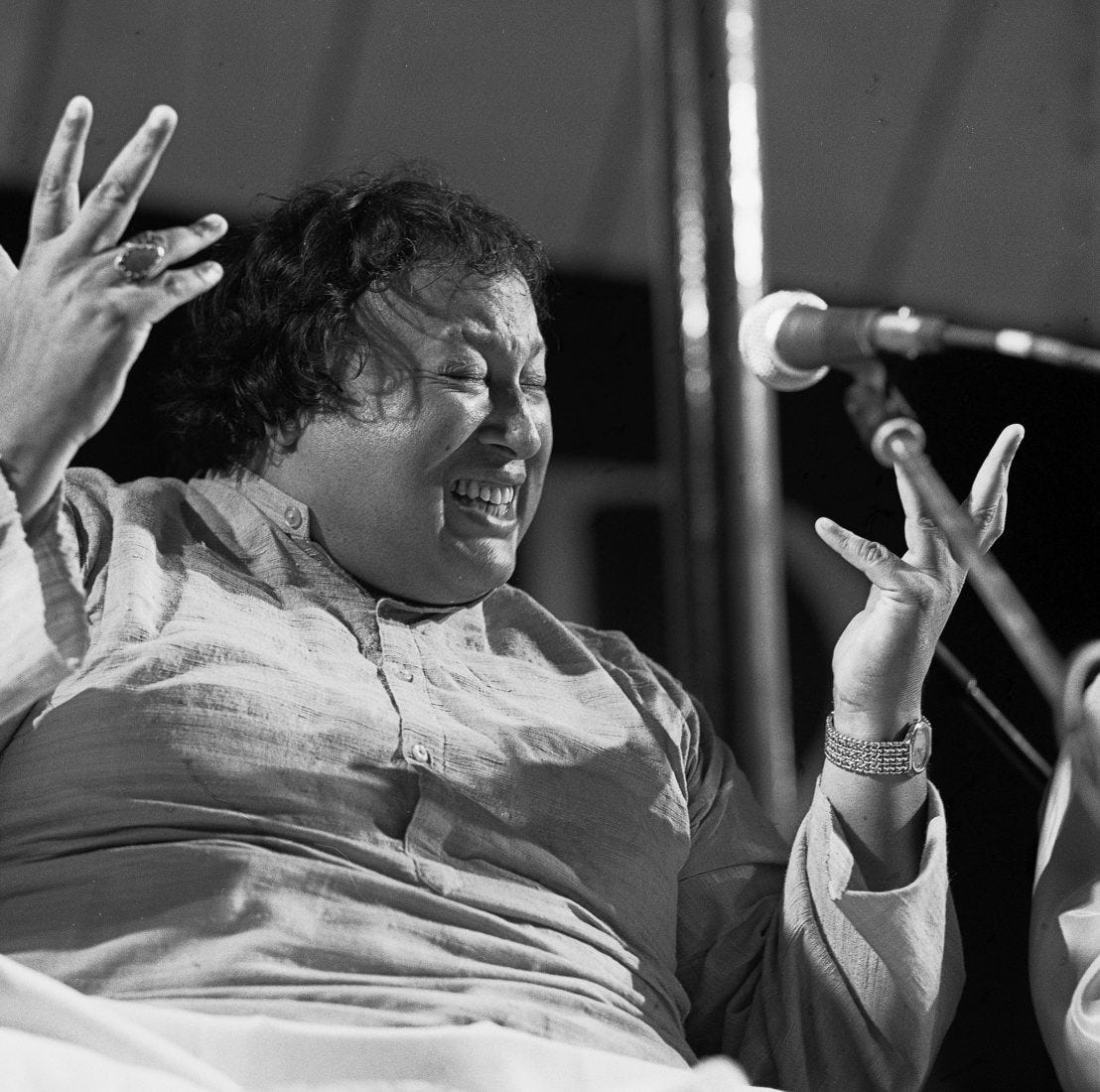
There are few artists who can claim to introduce to the world an entire style and form of music making, but Nusrat Fateh Ali Khan, the Pakistani singer did just that.
Qawwali, which literally means “utterance,” is a form of Sufi Islamic devotional singing and was largely unknown to Western audiences and rarely, if ever, sung outside of the dargah, or Sufi shrine. Qawwali is sung in the Punjab and Sindh regions of Pakistan, in Northern India, and parts of Bangladesh. Nusrat Fateh Ali Khan, born in 1948, was born into a family that had been Qawwals, singers and practitioners of Qawwali, for an astonishing 600 years.
A group of Qawwali musicians is called a party and it usually consists of eight or nine men. There is usually a lead singer and two or three side singers, one or two harmoniums, and percussion. Nusrat Fateh Ali Khan was the lead singer and his astonishing range and ability to sing intricate intricate solos, earned him the title, Shehnshah-e-Qawwali, the “King of Kings of Qawwali.”
He and his party first came to international attention in 1985 at the WOMAD Festival. Here is an interesting little documentary about this concert.
And one of my favorite songs, Allah Ho Allah Ho, begins the extraordinary album from this festival.
This appearance caused such a sensation that Peter Gabriel signed him to his Real World label in 1988. Their collaboration on the soundtrack to The Last Temptation of Christ was the first recording of many that made Nusrat Fateh Ali Khan a worldwide sensation. Ali Khan is featured on the track, Passion, but the whole album is a masterpiece.
Ali Khan’s first studio album for Gabriel’s Real World Records, Shahen Shah, became a world-wide sensation when it was released in 1989 and it was then that I truly understood the significance of this great artist.
This was quickly followed in 1990 by one of the greatest crossover albums ever conceived, Mustt Mustt, an album conceived by its producer, Michael Brook, and a very successful example of using musical styles from around the world fused around one incredible force, the voice of Nusrat Fateh Ali Khan.
This was followed in 1991 with a return to a traditional songs with the album, Shahbaaz.
Ali Khan’s lasted for a little more than a decade, for he died suddenly of cardiac arrest in 1997, at the age of 48. While these recordings are all incredible documents of a truly unique, it is something else to actually see him sing. Here is a phenomenal performance of Allah Ho Allah Ho from the 1992 WOMAD Festival in Yokohama, Japan.
